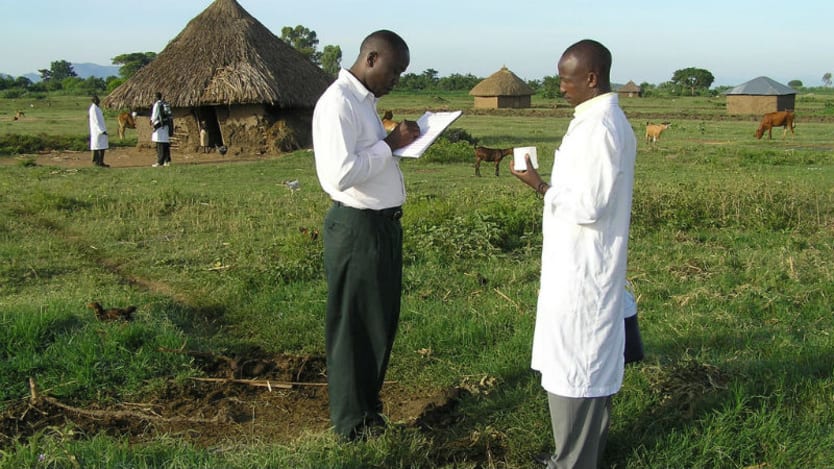
Malaria claimed 445,000 lives worldwide in 2016. The heaviest burden lies in Africa, where 90 percent of malaria cases and 91 percent of deaths occur, mostly affecting young children.
Shockingly, unlike previous years, malaria increased by an estimated 5 million cases in 2016 compared to 2015. To make things worse, the latest World Health Organization’s annual World Malaria Report shows that global funding for malaria has plateaued in recent years and, as a result, global progress has largely stalled, and in some places is being reversed.
If we are to accelerate efforts to eliminate malaria by 2030, we need a smarter, data-driven way of fighting malaria, including urgent investment in malaria surveillance systems.
Data collection in the countries with the heaviest malaria burden is still weak and fragmented. Data is received through different channels: routine data collection at health facilities; data from tools such as mobile apps, platforms, and health strategies to track the disease; survey data gathered at the baseline and endline of specific projects and through nationwide population surveys. This jigsaw is overlaid by qualitative data, such as lessons learned from projects or qualitative assessments.
According to a famous Chinese saying, “A journey of a thousand miles begins with a single step.” However, if we want to set the revolution in motion, we need to take one, two, three steps to create momentum for the journey.
Step 1: Invest in surveillance systems
Transforming malaria surveillance into a core intervention is part of the World Health Organization’s Global Technical Strategy, but it has remained underfunded and is not yet a priority in many countries. Digital health strategies can improve the quality and efficiency of data collection, particularly at the community level. The reliability of malaria diagnosis should be improved through parasite-based diagnosis with malaria rapid diagnostic tests or microscopy.
Different data systems in the jigsaw should be interoperable; they should speak to each other so that collective reports can be drawn and the right action taken to reach populations most in need with the right intervention in time.
Step 2: Improve the quality of data
For the data revolution to happen, we must improve the quality of collected data and increase the breadth of reporting.
Only when data from all levels — from the community up to the national level — can be brought together and fed into one national data system will it be possible to make sense of it all. This is needed to take action based on the data received, allocate funding and efforts wisely, and ultimately make the health system work better.
In addition, in many African countries data from different locations is aggregated, which means you can’t always track a case down to its exact location. This is fine while countries are in the malaria control phase, but as parts or all of the country progress along the continuum to elimination, individual case records will become important.
Step 3: Strengthen the capacity of staff to collect, analyze, and utilize data
Human capacity within health systems is sometimes weak when it comes to data collection, analysis, and use. National health systems, alongside the international donor community, need to invest in training, digital health strategies, and other tools to help staff make optimal use of data decision-making at all levels. Ideally, the primary source of data should be informed where relevant by the data collected.
Where human resource capacity is low, it is important to use existing structures that are already in place without placing additional burden on them. Digital health strategies can, for example, facilitate adherence to case management guidelines among community health workers while enabling data collection and transmission. In fact, data can be used to trigger health system alerts related to stock management and supervision.
The missing piece of the puzzle
The shock increase in malaria cases in 2016 has made it clear that we are at a crossroad in the fight against malaria. In order to take the right direction, we need to be more targeted with available funds and tools.
Surveillance data is essential to allow for better planning and implementing more targeted malaria interventions for those who need them most. It will also support efforts to advocate for investment from domestic and international sources.
The data revolution is the missing piece of the puzzle in the fight against malaria in Africa. Finding it will unlock further progress on the continent and save thousands of lives.








